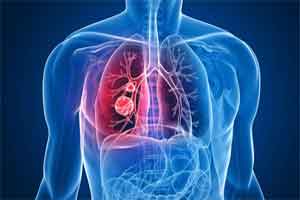- Home
- Editorial
- News
- Practice Guidelines
- Anesthesiology Guidelines
- Cancer Guidelines
- Cardiac Sciences Guidelines
- Critical Care Guidelines
- Dentistry Guidelines
- Dermatology Guidelines
- Diabetes and Endo Guidelines
- Diagnostics Guidelines
- ENT Guidelines
- Featured Practice Guidelines
- Gastroenterology Guidelines
- Geriatrics Guidelines
- Medicine Guidelines
- Nephrology Guidelines
- Neurosciences Guidelines
- Obs and Gynae Guidelines
- Ophthalmology Guidelines
- Orthopaedics Guidelines
- Paediatrics Guidelines
- Psychiatry Guidelines
- Pulmonology Guidelines
- Radiology Guidelines
- Surgery Guidelines
- Urology Guidelines
New research finds lung cancer risk drops substantially within five years of quitting

These are the main findings of a new analysis of the landmark Framingham Heart Study by researchers at Vanderbilt University Medical Center published May 16 by the Journal of the National Cancer Institute.
"If you smoke, now is a great time to quit," said first author Hilary Tindle, MD, MPH, the William Anderson Spickard Jr., MD Professor of Medicine at the Vanderbilt University School of Medicine and director of the Vanderbilt Center for Tobacco, Addiction, and Lifestyle.
"The fact that lung cancer risk drops relatively quickly after quitting smoking, compared to continuing smoking, gives new motivation," she said.
Tindle and her colleagues examined the health records of residents of Framingham, Massachusetts, who have been followed for decades by the Framingham Heart Study.
The study, which is supported by the National Heart, Lung, and Blood Institute, helped establish high blood pressure and high cholesterol as key risk factors for cardiovascular disease. But it also tracked cancer outcomes.
The current study looked at 8,907 participants who had been followed for 25 to 34 years. During this period, 284 lung cancers were diagnosed, nearly 93 percent of which occurred among heavy smokers, those who had smoked at least a pack of cigarettes a day for 21 years or more.
Five years after quitting, the risk of developing lung cancer in former heavy smokers dropped by 39 percent compared to current smokers, and continued to fall as time went on. Yet even 25 years after quitting, their lung-cancer risk remained over threefold higher compared to people who had never smoked.
The Framingham study is unique because it asked people about their smoking every two to four years, and could account for increases or decreases in smoking over time.
Current federal guidelines, which mandate insurance coverage of lung cancer screening for current and former smokers, exclude those who haven't smoked for 15 years or more. Yet four of 10 cancers in heavy smokers in the current study occurred more than 15 years after they quit.
Further study is warranted to determine whether extending the cut-off point for mandated screening would be cost-effective and save lives, the researchers concluded.
"While the importance of smoking cessation cannot be overstated, former heavy smokers need to realize that the risk of lung cancer remains elevated for decades after they smoke their last cigarette, underscoring the importance of lung cancer screening," said senior author Matthew Freiberg, MD, MSc, professor of Medicine.

Disclaimer: This site is primarily intended for healthcare professionals. Any content/information on this website does not replace the advice of medical and/or health professionals and should not be construed as medical/diagnostic advice/endorsement or prescription. Use of this site is subject to our terms of use, privacy policy, advertisement policy. © 2020 Minerva Medical Treatment Pvt Ltd